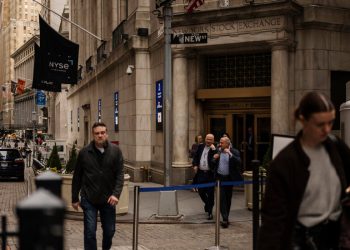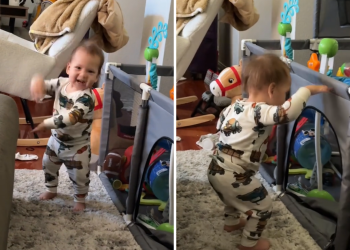- In 2024, Animal Equality found major violations in São Paulo slaughterhouses, where cows and chickens were mistreated under Brazil’s Self-Control Law.
- In 2022, an earlier investigation revealed cruelty at pig and cow slaughterhouses in Minas Gerais and Pará, warning about the dangers of the Self-Control Bill.
- Workers were seen twisting animals’ tails, kicking them, and using electric shocks on sensitive areas like the head and genitals.
- Some animals were skinned and dismembered while still alive.
- These findings point to a global problem as U.S. slaughterhouses speed up production lines, increasing risks for animal cruelty.
Animal Equality’s investigation reveals the impact of Brazil’s 2022 Self-Control Law, which reduced government oversight of slaughterhouses. The findings uncover rampant cruelty and violations, with profits prioritized over animals, public health, and transparency.
2024 investigation: São Paulo slaughterhouses
The latest investigation, featuring never-before-seen footage, uncovers significant failures in cow and chicken slaughterhouses in rural São Paulo.
These facilities were already following a state-level version of the Self-Control Law before it was implemented across the country. Investigators found widespread violations of handling and slaughter rules set by Brazil’s Ministry of Agriculture and Livestock.
2022 investigation: Early warnings ignored
In 2022, Animal Equality issued an urgent warning about the risks of the Self-Control Bill. Investigating pig and cow slaughterhouses in the states of Minas Gerais and Pará, the team uncovered a critical shortage of government inspectors.
Without proper oversight, workers were left to enforce safety and animal protection rules on their own, resulting in widespread violations. Despite these findings, the bill became law.
A pattern of cruelty and neglect
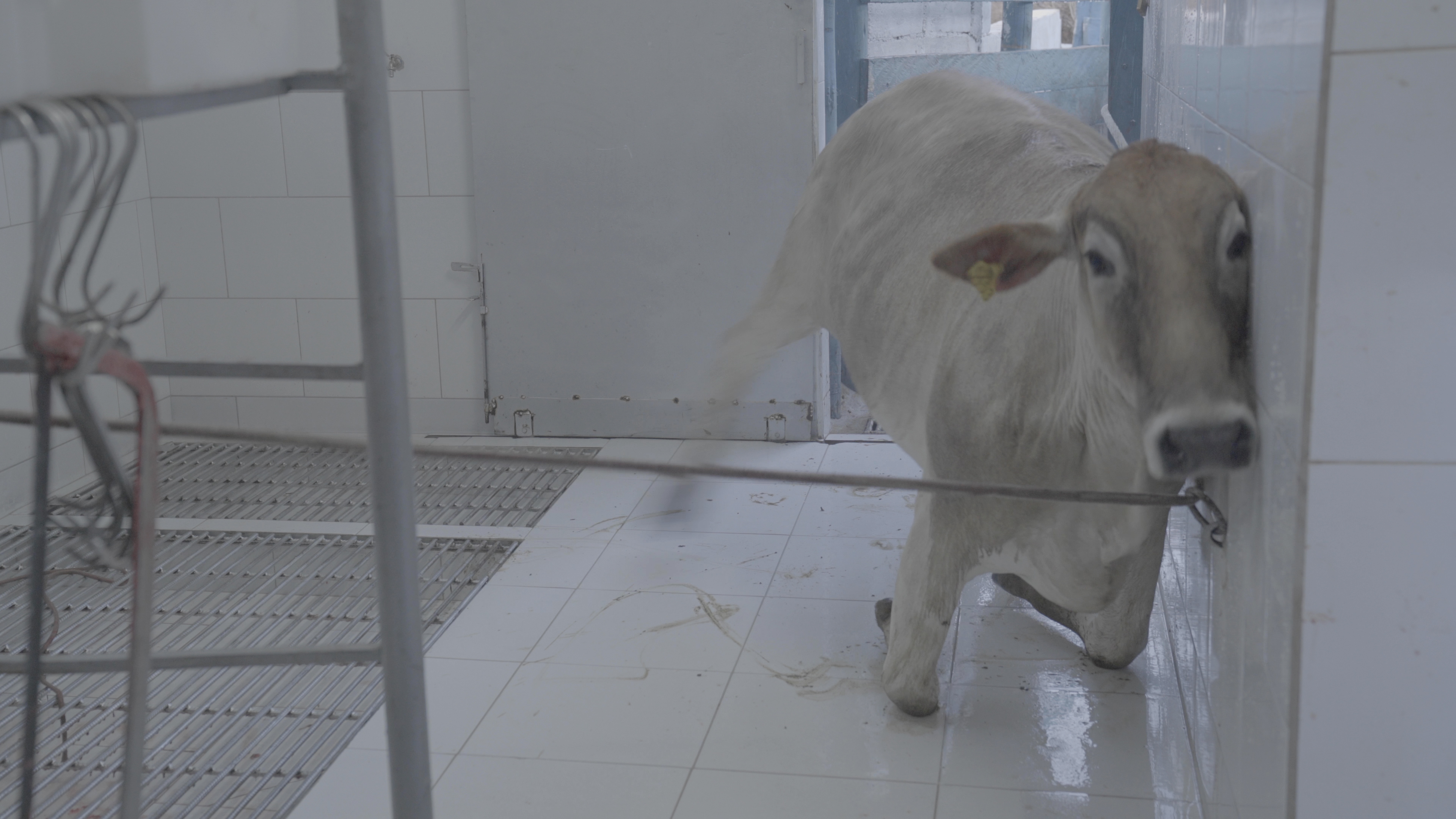
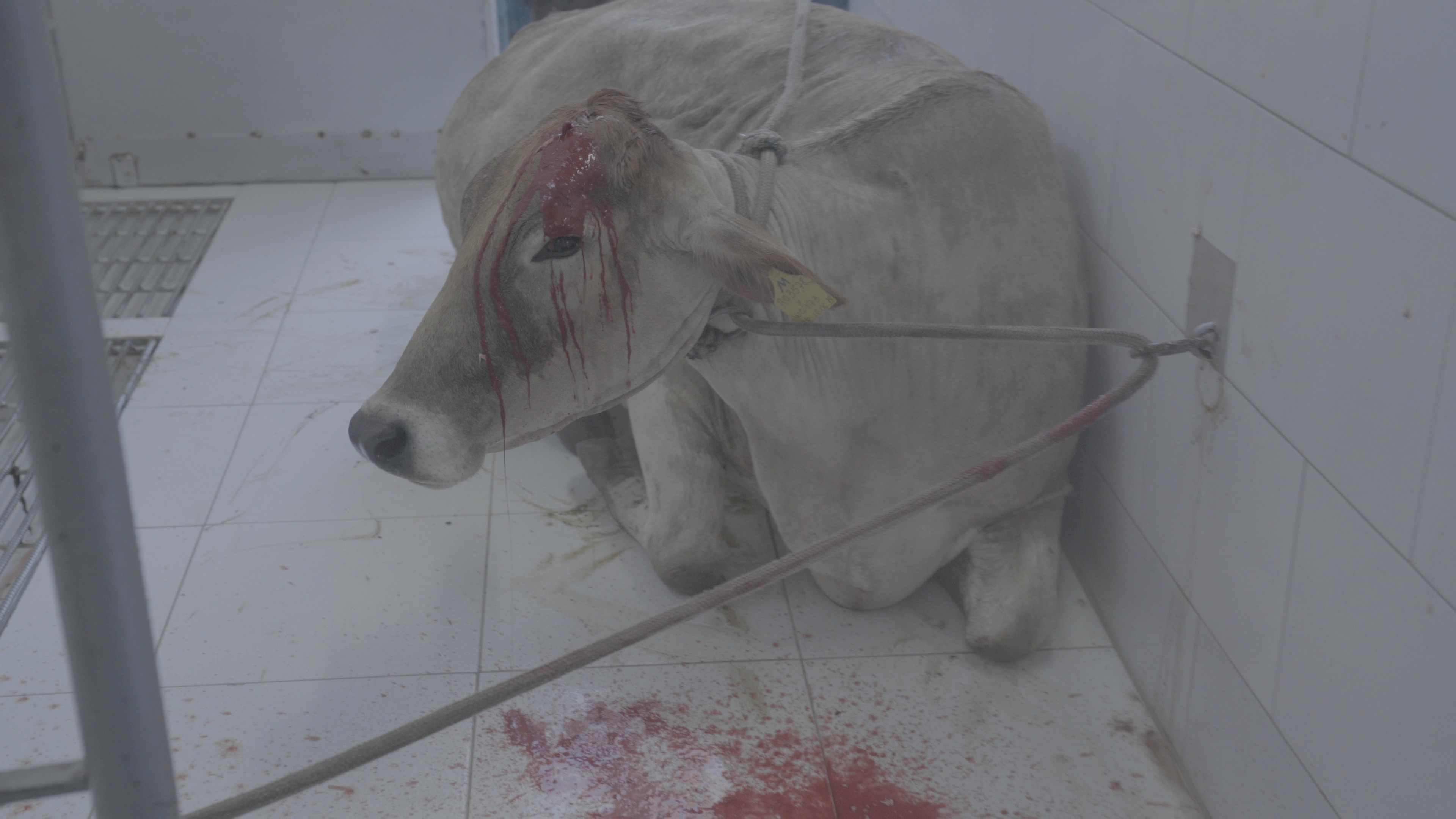
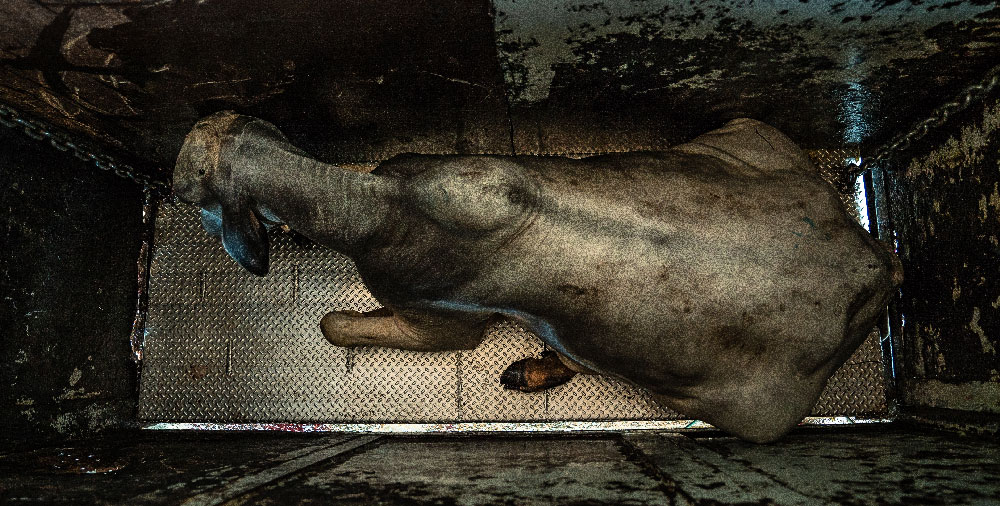
Between the 2022 and 2024 investigations, Animal Equality documented:
Intentional cruelty:
- Tail twisting and kicking animals in the face.
- Use of high-frequency electric shocks on prohibited areas, including the head, tail, genitals, and anus.
Stunning failures:
- Animals were tied with ropes instead of being secured in proper stunning boxes, making effective stunning nearly impossible.
- Captive bolt pistols were used incorrectly, leading to failed attempts to stun animals.
- Broken stunning tools were not fixed, forcing some animals to endure up to seven failed stunning attempts.
- No staff were assigned to ensure stunning was effective. When animals showed signs of consciousness–such as eye movement or lifting their heads–workers often did not repeat the stunning unless the animal became too agitated to manage.
Delayed slaughter:
- Stunned animals were left for over two minutes before slaughter, exceeding legal limits meant to prevent them from regaining consciousness:
- Non-penetrating captive bolt pistols deliver a blunt impact to the head, causing a concussion without breaking the skull. Animals must be slaughtered within 30 seconds, as this method loses effectiveness quickly.
- Penetrating captive bolt pistols use a bolt to penetrate the skull, causing deeper and longer-lasting unconsciousness. This method allows up to 60 seconds before slaughter must take place.
- Delays beyond these limits caused animals to regain consciousness, leading to extreme suffering.
Mutilations while conscious:
- Workers did not wait the required three minutes after slaughter to ensure animals were dead before mutilating them. This resulted in animals being skinned and dismembered while alive.
Poor facility conditions:
- Overcrowded pens with more animals than recommended.
- Animals left in extreme heat without shade or water.
- Slippery floors causing frequent slips and falls.
The Self-Control Law weakens oversight, exposes animals to harm, and puts consumers at risk. Society must demand action to reverse this law. – Carla Lettieri, Executive Director of Animal Equality Brazil
A global trend: Deregulation in the United States
Deregulation is quietly reshaping the meat industry in the United States, where federal regulators have begun allowing slaughterhouses to increase line speeds—often with devastating consequences for animals and food safety.
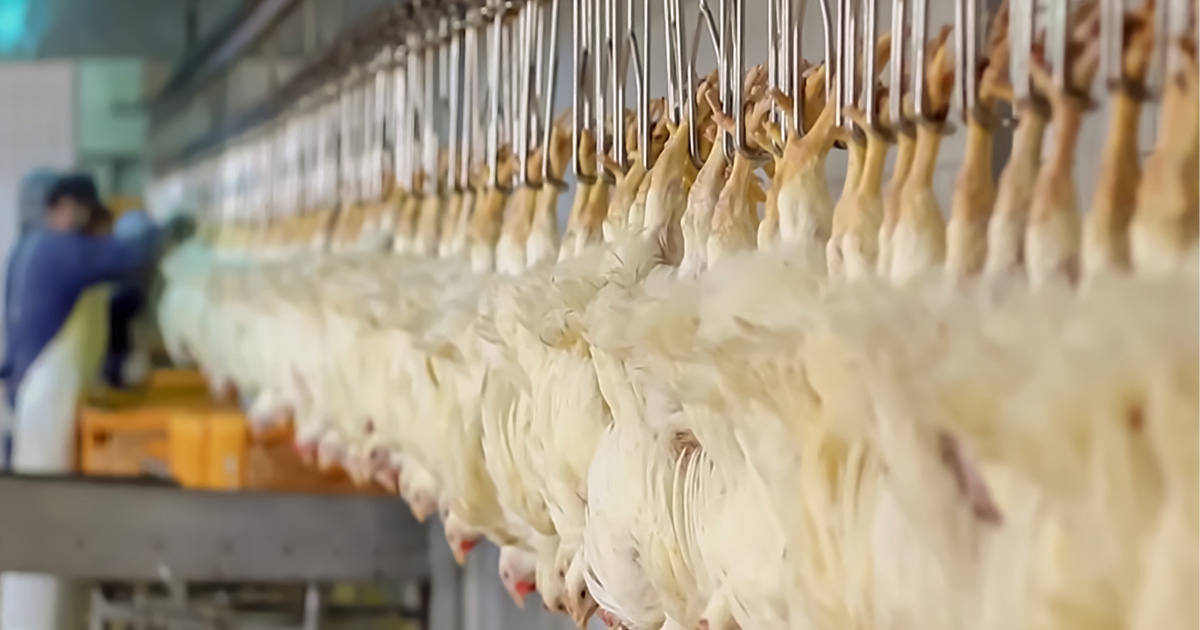
For decades, federal rules capped slaughterhouse line speeds to balance productivity with oversight. Today, those limits are quickly disappearing. Some facilities now operate without restrictions, and industry groups are lobbying for deregulation across chicken, turkey, and cow slaughterhouses.
Faster speeds overwhelm workers and machinery, leading to documented cases of animal suffering. Pigs improperly stunned have been seen writhing as their throats are cut. Chickens, shackled upside down, often pass over the stunning bath entirely, only to be boiled alive in scalding water. These incidents are becoming more difficult to prevent as the pace of slaughter accelerates.
Consumers have a role to play in addressing this crisis. Opting for plant-based foods not only reduces demand for such practices but also helps build a safer and more compassionate food system. In the face of increasing cruelty, every choice at the table counts.
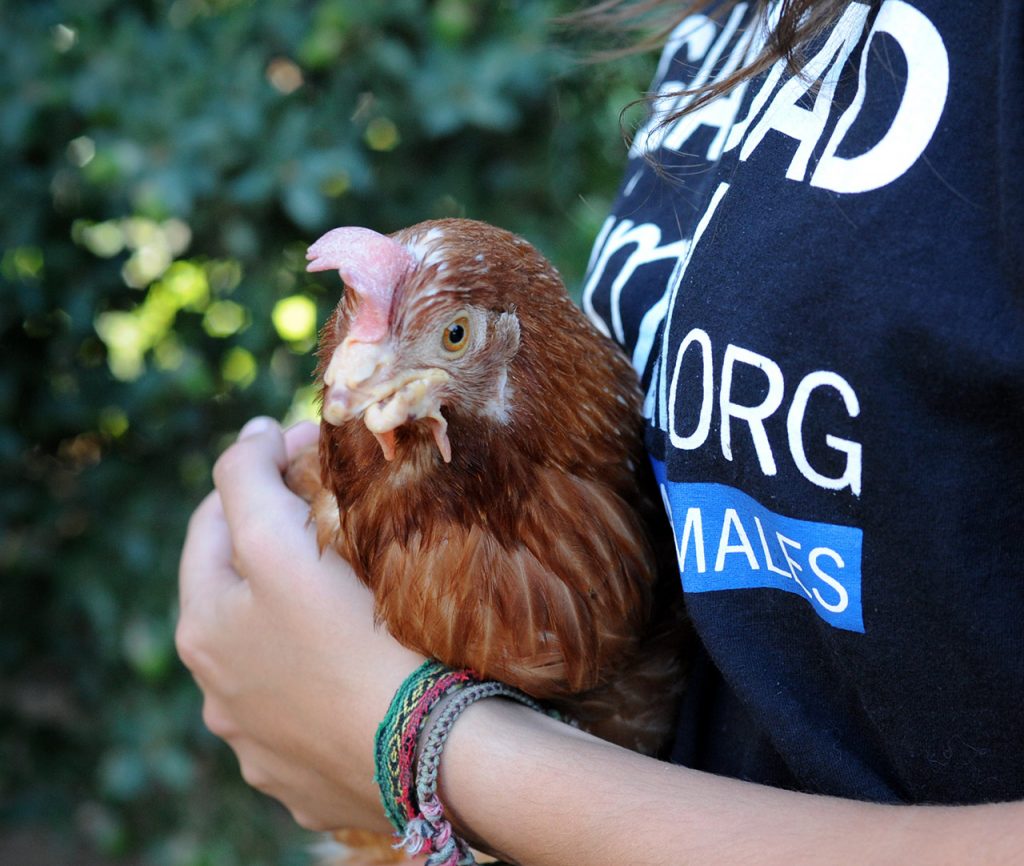
LIVE KINDLY
With rich emotional lives and unbreakable family bonds, farmed animals deserve to be protected.
You can build a kinder world by replacing animal food products with plant‑based ones.



